The American edition spoke about its point of view, why the inhabitants of the European Union are getting poorer. It turns out that the liquidation of their own production and sanctions against Russia did not affect the standard of living of Europeans, and their laziness and aging played the main role…
An aging population and respect for leisure have led to an economic decline. Then came the pandemic and the Russian invasion of Ukraine. Europeans are facing a new economic reality they haven’t seen in decades: they are getting poorer and poorer.
Europe went into recession
Life on a continent once the envy of all is fading as Europeans see their purchasing power evaporate. wall street journal.
The French now eat less foie gras and drink less red wine. Spaniards pour olive oil with pipettes, and Finns are advised to visit the sauna only on strong wind days, when wind turbines provide cheaper electricity. In Germany, meat consumption has fallen to its lowest level in three decades. In Italy, Economic Development Minister Adolfo Urso convened an anti-crisis meeting in May to raise the price of pasta.
With consumer spending falling, Europe slipped into recession earlier this year, reinforcing the sense of economic, political and military exhaustion that first emerged at the turn of the century. In the current state of Europe, there is nothing surprising, notes the Wall Street Journal. Behind weak productivity growth is an aging population that is focusing on leisure and job security. The situation is exacerbated by the Covid-19 pandemic and the protracted war in Ukraine – factors that lead to higher energy and food prices.
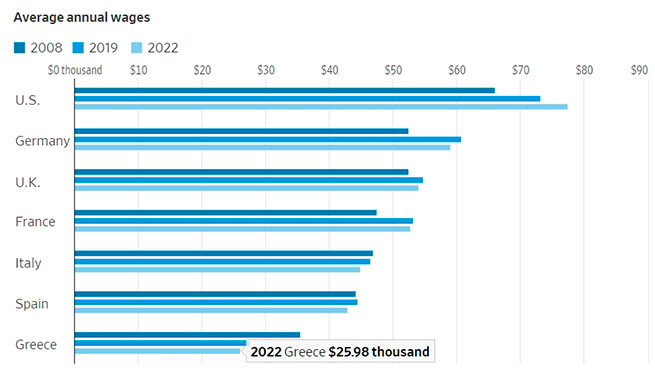
Subsidies to employers
The actions of the governments did not improve the situation, the American newspaper writes. In an attempt to protect jobs, they subsidized employers and left consumers without an airbag when the price shock hit. Americans, by contrast, have benefited from low energy prices and direct government assistance to keep citizens consuming.
Under these conditions, European exports did not save the situation, as demand for European products in China, Europe’s key market, remained low.
High energy costs and inflation not seen since the 1970s are limiting producers’ price advantage and exacerbating labor relations. With world trade down, Europe’s dependence on exports, which account for 50% of the eurozone’s GDP compared to 10% in the US, has suddenly become an obstacle.
Fall in private consumption
According to the Organization for Economic Co-operation and Development, since the end of the year, private consumption in the 20 eurozone countries has fallen by about 1%. In the US, where the labor market is strong and household incomes are rising, it has increased by almost 9%. The European Union currently accounts for about 18% of all global consumer spending, compared with 28% in the Americas. Fifteen years ago on a stake EU and the US accounted for about 25% of the total.
Adjusted for inflation and purchasing power, wages have declined by about 3% in Germany since 2019, by 3.5% in Italy and Spain, and by 6% in Greece. Real wages in the United States rose by about 6% over the same period, according to the OECD.
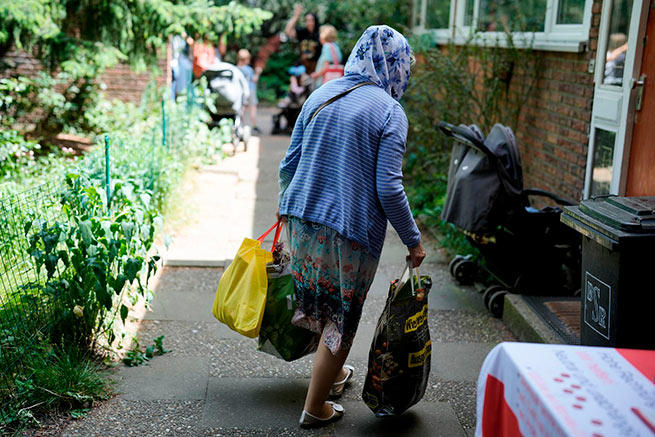
An elderly woman leaves a food distribution point in a Berlin church. PHOTO: MARKUS SCHREIBER/ASSOCIATED PRESS
Middle class in line for food
The problems cover the middle class as well. In Brussels, one of Europe’s wealthiest cities, teachers and nurses recently lined up to buy groceries at half price from the back of a truck. Their distributor Happy Hours Market collects end-of-life products from supermarkets and advertises them through an app. Customers can order early in the morning and pick up groceries at discount prices in the evening.
Similar services are springing up across Europe as a way to reduce food waste and save money. Founded in Denmark in 2015 and selling leftover food from retail stores and restaurants, TooGoodToGo has 76 million registered users across Europe, about three times more than at the end of 2020. In Germany, Sirplus, a start-up founded in 2017, even offers expired products in its online store. The same can be said for Motatos, founded in Sweden in 2014 and now operating in Finland, Germany, Denmark and the UK.
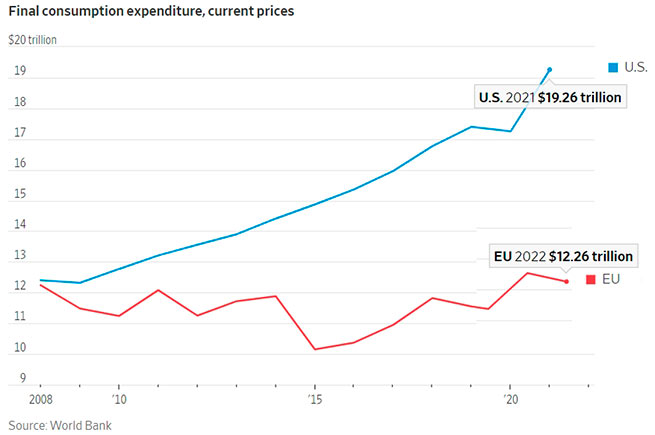
The gap with the US widens
Expenses for expensive products have been reduced. In 2022, Germans consumed 52 kg of meat per person, about 8% less than the previous year and the lowest since records began in 1989.
Over the past 15 years, the eurozone economy has grown by 6% in dollar terms, while the US has grown by 82% over the same period, according to the International Monetary Fund. As a result, the average per capita income in the EU is now lower than in any US state except Idaho and Mississippi, according to a report by the European Center for International Political Economy.
If current trends continue, the report warns, the gap between the US and the EU in per capita economic output will become as large as the distance that currently separates Japan from Ecuador.
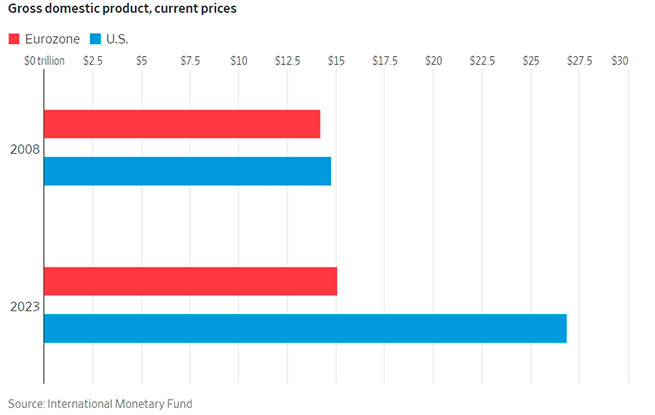
PS When the war between Russia and Ukraine began, and the EU began to impose sanctions against the Russian Federation, some analysts, incl. and the editor of Athens News, expressed the opinion that the United States is thus killing two birds with one stone – weakening Russia, the European Union, and through the EU they begin to influence China. Since, due to sanctions against Beijing and a drop in production in Europe, the EU is reducing trade turnover with China. An additional point was the assistance to Ukraine, for which tens of billions of euros are spent, as well as massive purchases of weapons, mainly manufactured by the United States.





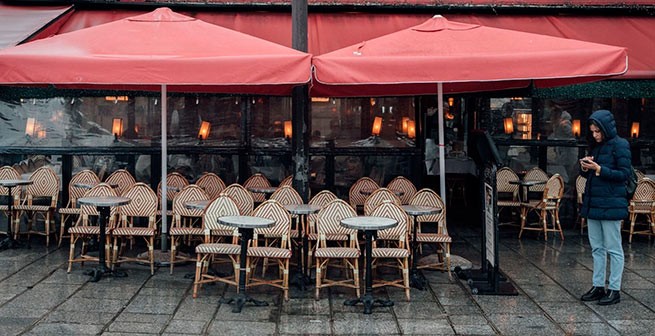

More Stories
Shock: Drag queen will carry the Olympic flame in Paris
Greece consistently ranks last in the EU for media freedom
Nuclear arsenals under AI control: how likely is the Terminator scenario?